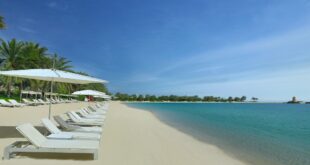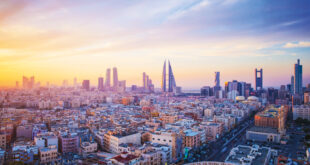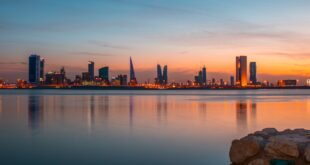Abu Saiba is one of the most popular villages in Bahrain. But actually, it deserves more attention than you might think. Conveniently located on the southern edge of the kingdom, the village comprises several residential communities where you can find apartments for rent in Bahrain, villas for rent in Bahrain, and a studio for rent in Bahrain.
Indeed, Bahrain has everything from timber chalets on stilts to imposing skyscrapers including thousands of stories and rural villages to have an exceptional experience. Undoubtedly, Bahrain is also famous for its gorgeous pearls making it a brilliant tourist destination if you want to know more about Arab culture, bask on a sandy beach or even have a hand on its mouthwatering cuisines.
So, what is unique about Bahrain?
Listen up, the precious jewels from the sea were the core of this country. Just imagine that pearls were first made this country a rich hub in the Middle East. Wow, amazing! After that, it generated a significant amount of oil.
So, Abu Saiba comes to complete its phenomenal picture, a perfect spot for everyone who is looking for a quaint place to escape from the hustle and bustle of the capital and urban areas.
Yes, Manama is incredible. But you know, crowded places are not for everyone, and that’s why you need to check out this village, and you’ll find something special for you.
Wherever you go around this village, you will find many cultural aspects ranging from customs, pottery works and many amazing things to delve into this unique legacy.
Contrary to popular belief, Bahrain has many communities reflecting the simple lifestyle and manifesting the authentic culture.
Overview of Abu Saiba
Abu Saiba is a small village known for its green color. It’s home to many plantations with green landscapes and positive rural vibes that will help you unwind.
The village includes many natural springs that are the primary source for agriculture which used their way around the kingdom from its rich natural resources.
Unfortunately, because of many factors like the increasing saturation of salt, most of these botanical gardens were destroyed, and a large portion of this land turned to be a desert.
Al-Shakhoura, Al-Hajar, and Maqaba are beautiful villages bordering the town on four sides, and it also overlooks the northern side of the kingdom from the north side of Al-Shakhoura.
The village was created using numbers to distinguish and name the four residential complexes on the main thoroughfare (469, 471, 473, 475).
Regarding the number of residents in Abu Saiba, there are only about 5,000 people.
As for its size, the village is relatively average, with an area of 0.83 square kilometers. The town is home to many prominent families with a name and history, including the al-Khabbaz family, al-Zaki family, al-Sa’a Habib Hussein, and the sons of Muhammad Hussein, al-Zayer, and finally al-Yousef and two individuals. As for its area, it is relatively average, with an area of 0.83 square kilometers.
There is no question that this village resembles the traditional spirit of Arab culture. You can find some huts to stay in if you are willing to have the whole experience.
Why is it Known for Abu Saiba?
The bride’s dress was the reason this village was referred to as “the dress made by the finger village,” as “Abu Saiba” means finger in Arabic. And it was also known for its luxurious textile industry.
Families, but now they are practically non-existent. So, in addition to raising livestock, they relied on handicrafts as their primary source of income.
Because the village of Abu Saiba is famous for its palm tree spread, they also worked in trade and other industries, including selling palm frond products.
Another theory is that the village was named after a famous leader called Ali, whose nickname Abu Saba was given to him by the residents of his town because he had an extra finger on one arm. One day he bet with another man on whether he would win the gamble.
Others from the small villages believed that whoever gets to Ain al-Souq first wins, and Ali was the first to get there, so the area became known as Abu Saba’, which means someone has fingers.
The history of the village of Abu Sabea
The history of this village goes back more than 500 years, and some claim it goes back even further.
The ancient Abd al-Qais tribe has inhabited it for a very long time, so it is obsolete. However, it is a science and education lighthouse, thanks to the work of its young people. As a result, the number of scholars in the village grew, and more than 40 of them worked together simultaneously.
According to some, the history of Abu Saiba dates back to the ancient Dilmun era, which was confirmed by some historians and excavators when they discovered some antiquities dating back to the Dilmun era during excavations.
After a long period when the villagers were old, many built their homes on the hills and burials in the eastern neighborhood in the eastern and western parts of town.
Important events in the heart of the Abu Saiba area
At the time, His Highness The Emir Sheikh Isa bin Salman Al Khalifa visited the village of Abu Sbei in 1958 and decided to establish several schools in the area to benefit the local children.
To light the lamps rather than torches, he ordered the installation of electricity in his village, completed in 1960 AD by the contractor Ibrahim Al-Shakr to extend the electric wires under the houses; these works were set up by that time.
Eventually, as soon as you arrive in Bahrain, you visit Abu Saiba village, which has a rich history dating back to Bahrain’s ancient Dilmun civilization, to get a sense of the country’s ancient past, just like Bab Al Bahrain. The village’s atmosphere is refreshing and reviving, so we encourage you to spend some time there while you’re here. Every inch of it exudes a sense of peace and tranquillity.
Know the most popular real estate websites in Bahrain:
 مدونة سكن مدونة موقع سكن
مدونة سكن مدونة موقع سكن








